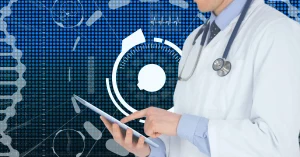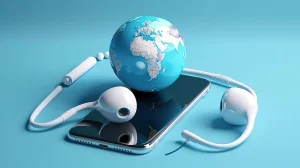Unlocking the Benefits of Medical Translation Services

In today’s globalized world, the ability to communicate effectively across language barriers is critical, especially in healthcare. Medical translation services play a vital role in ensuring that medical information is accurately conveyed, helping healthcare providers and patients make informed decisions, and ultimately, saving lives. Let’s dive into the world of medical translation and explore its importance, challenges, and benefits in the healthcare sector.
جدول المحتويات
- 1 Key Takeaways
- 2 The Importance of Medical Translation Services
- 3 Types of Medical Documents Requiring Translation
- 4 Professional Medical Translators: Key to Quality Translations
- 5 Medical Device Localization: Meeting Global Market Demands
- 6 Clinical Trials Translation: Ensuring Global Consistency
- 7 Linguistic Validation and Quality Assurance
- 8 Choosing the Right Medical Translation Service Provider
- 9 Case Study: Successful Medical Translation Project
- 10 Medical Interpretation Services: Bridging Language Barriers in Healthcare
- 11 Summary
- 12 Frequently Asked Questions
Key Takeaways
- Medical translation services are essential to ensure accurate and precise communication of complex medical information, meet legal/administrative requirements, and maintain patient safety.
- Professional medical translators possess expertise in healthcare sector & native language proficiency for quality translations.
- Stepes provides certified translation platform & interpretation services to facilitate global exchange of medical info with linguistic validation/quality assurance processes.
The Importance of Medical Translation Services
Medical translation services hold vital significance. They provide medical translation, ensuring accurate communication of complex medical information, meeting legal and administrative requirements, and maintaining patient safety. In an increasingly connected world, healthcare organizations must collaborate across borders, making accurate medical translations essential for the exchange of vital information and adherence to regulatory standards.
A meticulously structured translation process is employed to ensure precision, maintain the quality of medical documents, comply with relevant legal and regulatory conditions, and strive for optimal translation quality. Utilization of medical translation services offers advantages such as:
- Expedited delivery times
- A simplified process
- Translations of superior quality that adhere to specific requirements, leveraging the medical knowledge of the translators.
Complex Medical Terminology
Medical translation presents certain difficulties, such as the complexity of medical terminology, as well as unique acronyms and abbreviations employed in various clinical fields. Inaccurate translation of medical documents, such as medical reports, can have dire consequences for patients. Hence, it is vital to ensure the accuracy of medical translations and that translators possess a deep comprehension of the subject matter.
For medical device manufacturers, linguistic accuracy in medical translation is pivotal to prevent misinterpretation and potential harm to patients. Medical terminology management is the process of accurately defining each term and ensuring that they are carefully translated and reviewed in each target language by experienced medical translators.
Examples of medical documents that necessitate precise translation to prevent misinterpretation and potential harm to patients include:
- Protocols
- Informed consent forms
- Patient diaries
- Study reports
- Medical report
Legal and Administrative Requirements
Providing medical translation services that comply with legal and administrative requirements for medical document translation is necessary to ensure regulatory adherence. Medical translation necessitates multiple levels of quality control and a comprehensive comprehension of stringent regulatory laws, particularly for the US, the European Union, and Japan, which is crucial for medical professionals.
A translation vendor should possess familiarity with GDocP documents and be proficient in using a translation management system to effectively manage document version control, approval, and change management.
Patient education materials translation comprises translating education materials, such as brochures, leaflets, and videos, into multiple languages to provide patients with information regarding their conditions, treatments, and medications.
Types of Medical Documents Requiring Translation
Various types of medical documents that require translation services include:
- Patient records
- Research documents
- Pharmaceutical instructions
- Medical equipment manuals
For companies to ensure compliance and sustain a competitive edge in the international market, meeting global market demands like the European Union’s Medical Device Regulation (EU MDR) is vital.
Stepes, a certified quality medical document translation platform, offers services for a range of medical documents, including:
- IFUs
- Patient response forms for FDA submissions
- Medical device manuals
- Packaging for in-vitro instruments
The translation of these materials is crucial for the global exchange of information, ensuring that medical knowledge and advancements are accessible to healthcare providers and patients worldwide.
Professional Medical Translators: Key to Quality Translations
The role of professional medical translators in providing accurate translations is indispensable. Their expertise in medical fields, combined with native language proficiency, is essential in ensuring high-quality professional medical translation services. Hand-selected medical translators possess an extensive understanding of the industry and context, with many having a background in the healthcare sector.
Healthcare organizations, through the utilization of the skills of professional medical translators, can ensure effective communication of complex medical concepts across language barriers, thereby reducing the likelihood of costly errors and misunderstandings. These translators are well-versed in specialized medical terminology, enabling them to accurately convey crucial information to patients and healthcare providers alike.
Expertise in Medical Fields
For medical translators to accurately convey complex concepts, expertise in medical fields is essential. Stepes’ translators specialize in medical sciences and regulatory compliances, ensuring that the translations are both accurate and up-to-date with the latest industry standards.
A comprehensive range of expertise is required for professional medical translators, including:
- Linguistic skills
- Cultural awareness
- Knowledge of medical terms
- Understanding of patient care
- Background in medicine
- Translation fluency
This expertise ensures that complex medical information is accurately communicated, reducing the risk of misunderstandings and potential harm to patients.
Native Language Proficiency
In medical translation, native language proficiency is critical, ensuring that translations align with the culture and are easily comprehensible by the intended audience. This proficiency aids in minimizing the possibility of medical errors resulting from incorrect translations.
Achieving native language proficiency is a complex process, requiring an in-depth knowledge of the language and culture of the target audience. For instance, a medical translator who is fluent in both English and Spanish can guarantee that medical documents are accurately translated from English to Spanish, ensuring that the target audience comprehends the medical information accurately.
Medical Device Localization: Meeting Global Market Demands
By translating user manuals, technical specifications, software interfaces, and other materials, medical device localization services play a pivotal role in assisting companies to meet global market demands. By adapting medical devices to comply with the linguistic, cultural, and regulatory requirements of specific target markets, companies can ensure their products are accessible and user-friendly to international customers.
Stepes, a certified translation platform, offers medical device localization services for a range of materials, including:
- User manuals
- Technical specifications
- Software interfaces
- Subtitles
- And more
By partnering with experienced translators and adhering to ISO standards, Stepes ensures that medical devices meet the needs of diverse international markets while maintaining compliance with industry regulations.
Clinical Trials Translation: Ensuring Global Consistency
The translation of clinical research content, including clinical protocols, studies, and patient consent forms, is encompassed by clinical trials translation services. These services are vital for ensuring consistency and accuracy across international sites, enabling global collaboration and data sharing in medical research.
Utilizing clinical trials translation services offers the following benefits:
- Facilitates global cooperation and data exchange in medical research
- Guarantees uniformity and precision across international sites
- Streamlines the research process
- Ensures accurate communication and understanding of findings by researchers and healthcare professionals around the world.
Linguistic Validation and Quality Assurance
The validity and reliability of translated medical documents across languages are maintained by the crucial role of linguistic validation and quality assurance processes. By ensuring that medical translations are both accurate and consistent, healthcare organizations can trust that their international communications are clear and effective.
Utilizing translation memory can result in increased linguistic uniformity, cost efficiency, and swift completion. By implementing stringent quality control measures and adhering to regulatory standards, medical translation services providers can ensure that their translations meet the highest levels of quality and accuracy, ultimately improving patient care and outcomes.
Choosing the Right Medical Translation Service Provider
To ensure the accuracy and reliability of translated medical documents, it is essential to select the right medical translation service provider. Factors to consider when choosing a provider include:
- Expertise
- Turnaround time
- Cost
- Data protection
A reputable medical translation service provider should possess proficiency in medical-related areas, including medical terminology, medical writing, and medical regulations. Additionally, turnaround time, pricing, and data security should be carefully evaluated to ensure that the provider can deliver high-quality translations while safeguarding confidential data.
Case Study: Successful Medical Translation Project
The importance of collaboration between translators, subject matter experts, and clients is highlighted in a case study showcasing a successful medical translation project. In this example, Stepes’ expert medical translation services assisted Pfizer in creating a comprehensive dictionary of medical terminology (120K terms) spanning multiple medical disciplines.
This case study underscores the necessity of cooperation between translators, subject matter experts, and clients to guarantee a successful medical translation project. By working together, these stakeholders can ensure that medical translations are accurate, comprehensive, and tailored to the unique needs of the healthcare industry.
Medical Interpretation Services: Bridging Language Barriers in Healthcare
In healthcare settings, medical interpretation services enable effective communication between patients and healthcare providers by bridging language barriers. These services involve the conversion of spoken words from one language to another in a medical setting, facilitating communication for patients with limited English proficiency.
The importance of medical interpretation services in healthcare settings lies in their ability to enhance patient satisfaction, improve patient outcomes, and increase efficiency. By reducing medical errors and enhancing patient safety, medical interpretation services play a pivotal role in ensuring that all patients receive the highest quality of care, regardless of language barriers.
Summary
In conclusion, medical translation services play a critical role in the global healthcare landscape. From bridging language barriers in patient care to ensuring compliance with legal and administrative requirements, accurate medical translations are essential for effective communication and patient safety. By partnering with professional medical translators and adhering to rigorous quality assurance processes, healthcare organizations can ensure that their international communications are clear, accurate, and culturally appropriate, ultimately improving patient outcomes and advancing global healthcare.
Frequently Asked Questions
What is translation in the medical language?
Medical translation is the practice of translating documents related to healthcare, medical devices, marketing, clinical and technical documentation for the medical and pharmaceutical industry in a given language and producing the same material in other languages.
What is the best medical translator?
For medical translation needs in 2023, the best apps are Systran, Pairaphrase, MediBabble, VerbalCare, ITranslate, Canopy App, and Google Translate. Care To Translate is also a great choice.
Can you use Google Translate for medical translation?
Google Translate should not be used for medical translations, as research done by Patil and Davies for The BMJ in 2014 has shown. Professional translators should always be consulted for such matters.
What is the main purpose of medical translation services?
The main purpose of medical translation services is to ensure accurate communication, meet legal requirements and protect patient safety.
What types of medical documents typically require translation services?
Patient records, research documents, pharmaceutical instructions, and medical equipment manuals all require translation services to ensure accurate understanding.












